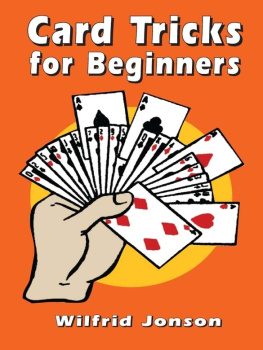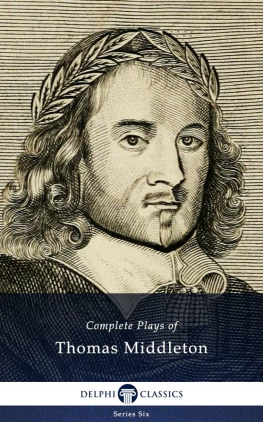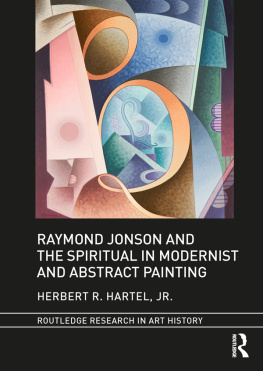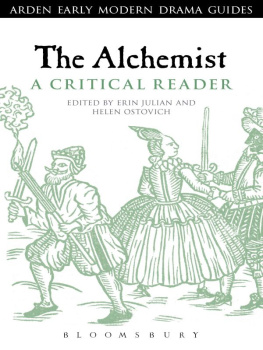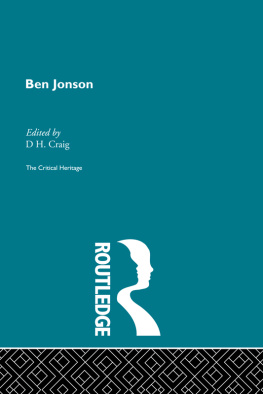Ben Jonson - Volpone and Other Plays
Here you can read online Ben Jonson - Volpone and Other Plays full text of the book (entire story) in english for free. Download pdf and epub, get meaning, cover and reviews about this ebook. year: 2010, publisher: Penguin Group, genre: Detective and thriller. Description of the work, (preface) as well as reviews are available. Best literature library LitArk.com created for fans of good reading and offers a wide selection of genres:
Romance novel
Science fiction
Adventure
Detective
Science
History
Home and family
Prose
Art
Politics
Computer
Non-fiction
Religion
Business
Children
Humor
Choose a favorite category and find really read worthwhile books. Enjoy immersion in the world of imagination, feel the emotions of the characters or learn something new for yourself, make an fascinating discovery.
- Book:Volpone and Other Plays
- Author:
- Publisher:Penguin Group
- Genre:
- Year:2010
- Rating:5 / 5
- Favourites:Add to favourites
- Your mark:
- 100
- 1
- 2
- 3
- 4
- 5
Volpone and Other Plays: summary, description and annotation
We offer to read an annotation, description, summary or preface (depends on what the author of the book "Volpone and Other Plays" wrote himself). If you haven't found the necessary information about the book — write in the comments, we will try to find it.
In this collection of plays, now with a new title, Ben Jonson created in Volpone and The Alchemist hilarious portraits of cupidity and chicanery, while in Bartholomew Fair he portrays his fellow Londoners at their most festiveand most bawdy
Volpone and Other Plays — read online for free the complete book (whole text) full work
Below is the text of the book, divided by pages. System saving the place of the last page read, allows you to conveniently read the book "Volpone and Other Plays" online for free, without having to search again every time where you left off. Put a bookmark, and you can go to the page where you finished reading at any time.
Font size:
Interval:
Bookmark:
 VOLPONE AND OTHER PLAYS BEN JONSON was born in 1572, the posthumous son of a minister, and thanks to an unknown patron was educated at Westminster School. After this he was for a brief time apprenticed to his stepfather as a bricklayer. He served as a soldier in the Low Countries and married sometime between 1592 and 1595. In 1597 he began to work for Henslowes company as a player and playwright and during the following two years two groundbreaking comedies, Every Man in his Humour and Every Man out of his Humour, were produced. These were followed by Cynthias Revels (1600) and The Poetaster (1601). Jonsons great run of comedies consists of Volpone (1606), Epicoene, or the Silent Woman (1609), The Alchemist (1610) and Bartholomew Fair (1614).
VOLPONE AND OTHER PLAYS BEN JONSON was born in 1572, the posthumous son of a minister, and thanks to an unknown patron was educated at Westminster School. After this he was for a brief time apprenticed to his stepfather as a bricklayer. He served as a soldier in the Low Countries and married sometime between 1592 and 1595. In 1597 he began to work for Henslowes company as a player and playwright and during the following two years two groundbreaking comedies, Every Man in his Humour and Every Man out of his Humour, were produced. These were followed by Cynthias Revels (1600) and The Poetaster (1601). Jonsons great run of comedies consists of Volpone (1606), Epicoene, or the Silent Woman (1609), The Alchemist (1610) and Bartholomew Fair (1614).
In addition to his comic writing Jonson also produced two powerful Roman tragedies, Sejanus, his Fall (1603) and Catiline, his Conspiracy (1611). After 1616 Jonson abandoned the public theatre for a decade, concentrating his efforts entirely on the court masques, a form of entertainment that reached its highest elaboration in his hands, and his sporadic returns to comic drama in the Caroline period met with less popular success than his Jacobean masterpieces. In 1616 he was granted a royal pension and made, in effect, Poet Laureate. His latter years were unhappy, though. Under Charles I he lost favour and was replaced as masque-writer after quarrelling with Inigo Jones, the masque-designer. He also suffered from paralysis and was unable to publish the second volume of his Workes.
Ben Jonson died on 6 August 1637. MICHAEL JAMIESON studied at the University of Aberdeen, Princeton University, and Kings College, Cambridge. He was on the staff of the University of Keele for two years before going to the University of Sussex in 1962 as a lecturer in the School of English and American Studies. He has also taught at the University of Rome and the University of California at Santa Cruz. He has published a study of As You Like It and articles on Elizabethan acting and on modern theatres for Shakespeare. BEN JONSON
Penguin Books Ltd, 80 Strand, London WC2R 0RL, England
Penguin Group (USA), Inc., 375 Hudson Street, New York, New York 10014, USA
Penguin Books Australia Ltd, 250 Camberwell Road, Camberwell, Victoria 3124, Australia
Penguin Books Canada Ltd, 10 Alcorn Avenue, Toronto, Ontario, Canada M4V 3B2
Penguin Books India (P) Ltd, 11 Community Centre, Panchsheel Park, New Delhi 110 017, India
Penguin Books (NZ) Ltd, Cnr Rosedale and Airborne Roads, Albany, Auckland, New Zealand
Penguin Books (South Africa) (Pty) Ltd, 24 Sturdee Avenue, Rosebank 2196, South Africa Penguin Books Ltd, Registered Offices: 80 Strand, London WC2R 0RL, England www.penguin.com This collection published in the Penguin English Library 1966
Reprinted in Penguin Classics 1985 as Three Comedies
Reprinted under present title 2004
6 Introduction and Notes copyright Michael Jamieson, 1966
All rights reserved Except in the United States of America, this book is sold subject
to the condition that it shall not, by way of trade or otherwise, be lent,
re-sold, hired out, or otherwise circulated without the publishers
prior consent in any form of binding or cover other than that in
which it is published and without a similar condition including this
condition being imposed on the subsequent purchaser
If Jonsons learnd sock be on,
Or sweetest Shakespeare, Fancys child,
Warble his native wood-notes wild.
THIS, I suppose, is the context in which many of us as school-children first came upon the mere name of Ben Jonson. It occurs in John Miltons L Allegro, in that passage where the poet, talking of the nocturnal pleasures of city life, enthuses over the comic theatre. It is ironic that the second line, which contains Miltons tribute to the master of English comedy, should have become a puzzling allusion which young minds are required to explain at O-level. Yet Jonson belongs with those writers whom one is often expected to know about rather than to have read. I was fortunate in that I next came upon Jonson in the theatre, when Donald Wolfit was playing Volpone and relishing that archpredators sardonic villainies. That Jonson could still be a great entertainer came as a revelation.
He belongs on the boards, as Milton indeed was suggesting in the expression well-trod stage, but the doubly allusive lines from L Allegro seem, from the way in which they demand foot-noting, sadly symbolic of Jonsons reputation among readers today. The learnd socks are the slippers Greek and Roman actors wore in comedies; in these lines Jonson, the classically erudite writer of comedy, is epitomized in an allusion from the theatre of the Ancients by a poet of even greater classical erudition. But Milton expected his readers to recognize also a graceful compliment to Ben Jonson, for in this authors own poem in Shakespeares memory prefaced to the First Folio, sock is similarly used: And though thou hadst small Latin and less Greek, From thence to honour thee I would not seek For names; but call forth thund ring Aeschylus. Euripides, and Sophocles to us. Or, when thy socks were on, Leave thee alone, for the comparison Of all that insolent Greece or haughty Rome Sent forth, or since did from their ashes come. In Miltons four lines we seem to find several aspects of Jonson which are daunting to the general reader of books his classicism, his great learning, his tendency (like Milton with learnd sock) to need explanatory notes, and, of course, his complete contrast to William Shakespeare.
Milton is, in fact, praising Jonson, placing him first, and being, if anything, condescending about Shakespeare. But that is not how the lines strike us at first reading today, for we put a higher value than Milton did on spontaneity, and are quick to sniff pedantry in a classical writer. There is something daunting about Jonsons present-day reputation; and anyone introducing a volume of his plays has to begin by stressing what ought to be obvious that his three best comedies are still very funny, that they make splendid reading, and that they are vivid, lucid, and marvellously actable stage-plays. Critics have already dwelt, a shade lugubriously, on this daunting aspect of Jonsons work. In 1919 T. S.
Eliot wrote: The reputation of Jonson has been of the most deadly kind that can be compelled upon the memory of a great poet. To be universally accepted; to be damned by the praise that quenches all desire to read the book; to be afflicted by the imputation of the virtues which excite the least pleasure; and to be read only by historians and antiquaries this is the most perfect conspiracy of approval. In 1938 Professor Harry Levin continued in a similar vein: Ben Jonsons position, three hundred years after his death, is more than secure; it might almost be called impregnable. He is still the greatest unread English author. Jonson has always had more attention from antiquarians than from critics, and has too often served as a cadaver over which to read a lecture on the lore of language and custom. T. S. S.
Eliot, admitting the long neglect into which Ben Jonsons work had fallen, put up a strong plea for Jonson as an artist, and thus made a respect for this poet de rigueur in literary circles. But ones impression is that what people have read has been, not Jonson, but Eliots essay. Readers are still put off by talk of Jonsons monumental learning and by the constant, artificial twinning, as in Miltons lines, of a Jonson laboriously theoretical and a Shakespeare effortlessly inspired. Many critical discussions of Jonsonian comedy are bedevilled by the fact that writers on Shakespeare use Jonson as the convenient representative writer of classical comedy, in order to contrast that
Next pageFont size:
Interval:
Bookmark:
Similar books «Volpone and Other Plays»
Look at similar books to Volpone and Other Plays. We have selected literature similar in name and meaning in the hope of providing readers with more options to find new, interesting, not yet read works.
Discussion, reviews of the book Volpone and Other Plays and just readers' own opinions. Leave your comments, write what you think about the work, its meaning or the main characters. Specify what exactly you liked and what you didn't like, and why you think so.



